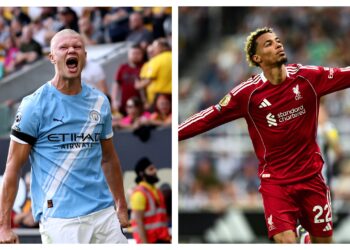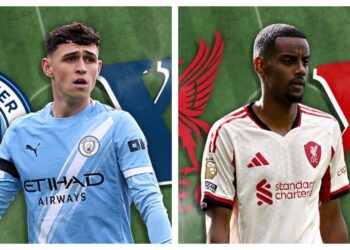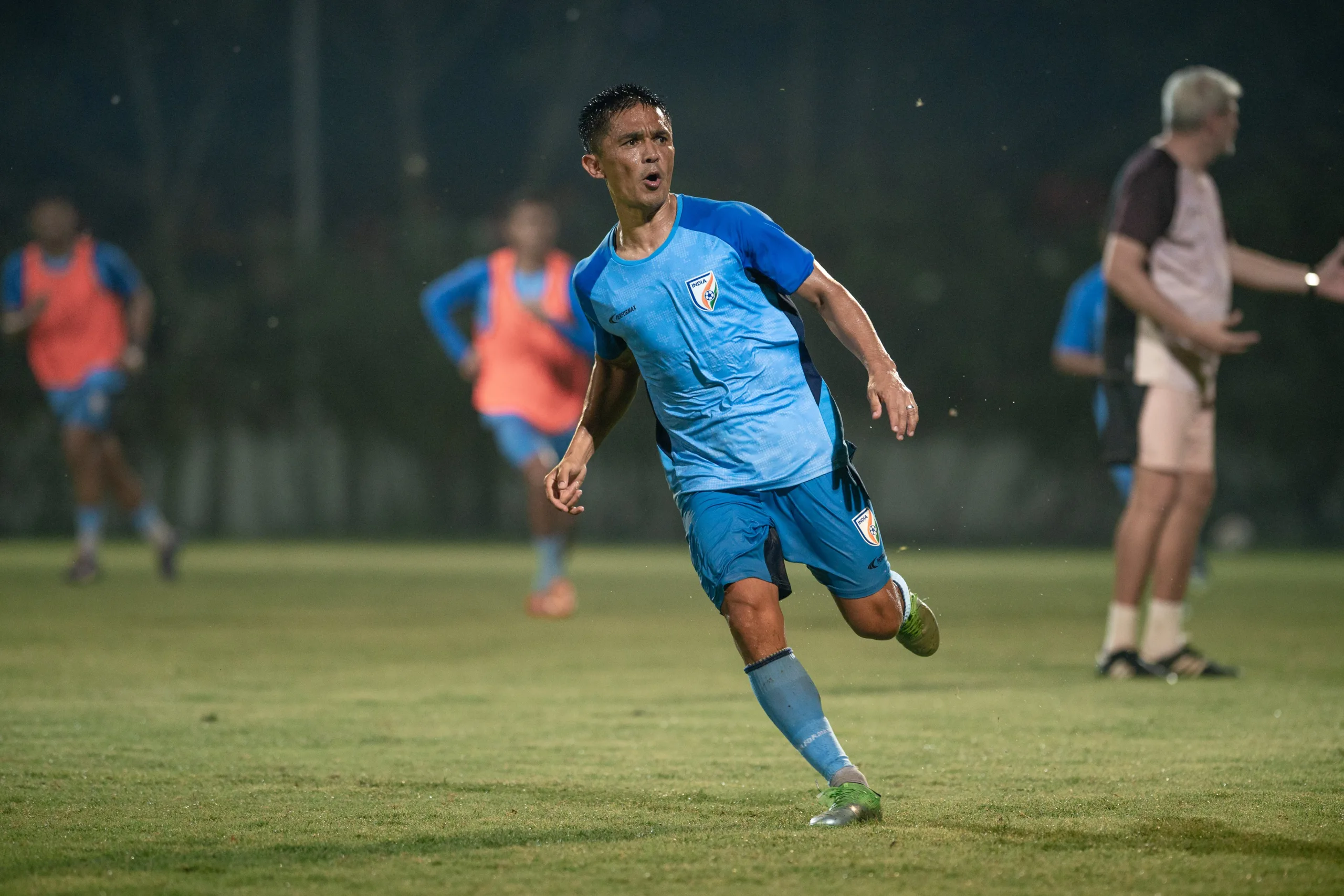In football, the highest praise often comes from your fiercest rivals. After Manchester City’s encounter with Liverpool, Pep Guardiola took a moment to spotlight an unlikely hero—not from his own squad, but from the opposition. The Spanish tactician hailed Liverpool’s young right-back Conor Bradley as “one of the best full-backs in the Premier League,” cementing the Northern Irish defender’s arrival as a genuine top-tier talent.
Table of Contents
Bradley Breakthrough: From Unknown to Unstoppable
At just 21 years old, Conor Bradley has transformed from a promising academy prospect to Liverpool’s defensive revelation this season. Guardiola’s praise wasn’t casual commentary—it came after watching his winger Jeremy Doku battle against Bradley throughout the match, with the City boss acknowledging the defender’s exceptional performance against Real Madrid’s Vinicius Jr just days earlier.

Speaking to the media post-match, Guardiola didn’t hold back: “Doku had an outstanding game against one of the best full-backs in the Premier League. Bradley is so quick, I saw his game against Vinicius Junior.” Coming from a manager who’s faced Dani Alves, Philipp Lahm, and João Cancelo in his career, this recognition carries significant weight.
Liverpool Match Statistics Breakdown
| Aspect | Details |
|---|---|
| Match Result | Manchester City 3-0 Liverpool |
| Guardiola Milestone | 1,000th game as manager |
| City Scorers | Haaland (29′), Gonzalez (45+2′), Doku (63′) |
| Bradley’s Opponent | Jeremy Doku (City winger) |
| Recent Performance | Contained Vinicius Jr vs Real Madrid |
| League Position Impact | City move to 2nd, 4 points behind Arsenal |
What Makes Bradley Special: The Pep Lijnders Connection
Guardiola revealed he’d received glowing reports about Bradley from Pep Lijnders, Liverpool’s former assistant coach who worked closely with the young defender. “Pep Lijnders told me a thousand incredibly good things about that guy, he can do everything,” Guardiola explained. “I know the game against Madrid how good he was against Vinicius—he’s wow, right?”
This endorsement from Lijnders, now managing at Red Bull Salzburg, provides insight into Bradley’s training ground excellence. The Northern Irish international combines blistering pace with tactical intelligence—rare attributes that allow him to neutralize world-class wingers like Vinicius and hold his own against Doku’s trickery.
Bradley’s versatility impressed Guardiola most. Unlike many modern full-backs who excel in one phase (either attacking or defending), Bradley demonstrates completeness. His recovery speed allows Liverpool to defend transitions effectively, while his overlapping runs provide width in attack—essential qualities in manager Arne Slot’s tactical system.
For football fans in India following the Premier League’s tactical evolution, understanding defensive excellence matters as much as attacking flair. TechnoSports provides comprehensive coverage of global football developments that shape modern tactics.
Doku’s Challenge: Testing Liverpool’s Rising Star
While praising Bradley, Guardiola also highlighted Jeremy Doku’s performance. “He was aggressive, quick without the ball, and we tried to help him. He played an outstanding game!” The Belgian winger’s goal and overall display demonstrated why City invested heavily in him, but Bradley’s defensive work made Doku earn every yard.
This tactical battle exemplified modern football’s chess match between explosive wingers and athletic full-backs. Doku’s dribbling ability—statistically among the Premier League’s best—met Bradley’s reading of the game and physical attributes. The fact that Guardiola praised both players speaks to the high-level contest between them.

Guardiola’s Historic Milestone Amid Title Race Drama
The match marked Guardiola’s 1,000th game as a manager—a remarkable achievement spanning Barcelona, Bayern Munich, and Manchester City. The Spaniard called it a perfect occasion: “What Liverpool mean here in my career, to do it that way I’m so proud. Everyone has been top, I’m really pleased.”
City’s 3-0 victory moved them to second place in the Premier League, four points behind Arsenal after 11 matches. Erling Haaland continued his relentless scoring form (despite an earlier missed penalty), Nico Gonzalez added a second before halftime, and Doku sealed the win after the hour mark.
Liverpool’s defeat drops them in the tightly contested table, but Bradley’s individual performance amid team struggles highlights his importance to Slot’s rebuild. The young defender’s ability to perform against elite opposition—Real Madrid’s Vinicius, then City’s Doku—demonstrates maturity beyond his years.
The Future Looks Bright: Bradley’s Premier League Trajectory
Guardiola’s public praise serves multiple purposes. It acknowledges genuine quality, provides tactical insight into City’s preparation, and perhaps subtly unsettles Liverpool by highlighting a player they must now protect from transfer interest. Top managers rarely praise opposition players without reason—Guardiola sees something special in Bradley.
For Liverpool, securing Bradley’s long-term future becomes crucial. Right-backs of his caliber are increasingly rare in modern football. His combination of defensive solidity and attacking potential fits perfectly into contemporary tactical systems that demand complete full-backs.
The Northern Irish international’s rapid development under Liverpool’s coaching staff validates the club’s youth development strategy. While expensive signings grab headlines, homegrown talents like Bradley provide sustainable success—both financially and emotionally connecting the club to its fanbase.
FAQs
Q: How does Conor Bradley compare to Liverpool’s legendary right-backs like Trent Alexander-Arnold?
Bradley and Alexander-Arnold represent different right-back archetypes. Alexander-Arnold revolutionized the position with his playmaking ability, creating chances from deep positions and functioning as a midfielder in possession. Bradley, while competent going forward, excels primarily in defensive duels and recovery runs—attributes Slot’s system prioritizes differently than Klopp’s approach. Where Alexander-Arnold might struggle against rapid wingers in transition, Bradley’s pace and positioning make him more defensively secure. Both are world-class talents, but Bradley’s profile suits matches requiring defensive discipline against elite attackers, while Alexander-Arnold dominates games through creative control.
Q: Why would Pep Guardiola publicly praise an opponent’s player after an important victory?
Guardiola’s praise reflects several tactical and psychological factors. First, it’s genuine recognition—top managers respect quality regardless of allegiance. Second, it contextualizes City’s performance; highlighting Bradley’s excellence makes Doku’s successful battle more impressive. Third, it subtly pressures Liverpool to manage Bradley carefully—once a player receives such high-profile praise, expectation levels increase, potentially affecting future performances. Finally, it demonstrates City’s thorough preparation; Guardiola publicly confirming he studied Bradley’s Real Madrid performance shows the analytical depth behind City’s success. Great managers view football holistically—praising opponents costs nothing while providing tactical insights and psychological advantages.








